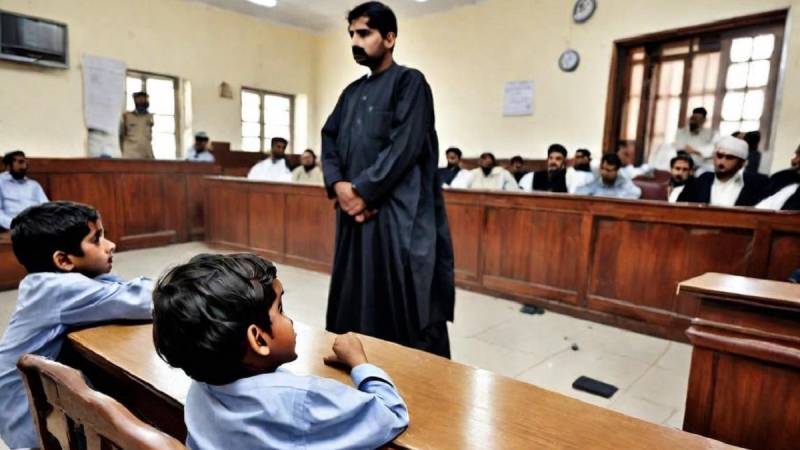
The Supreme Court has observed that the environment generally prevalent in Pakistani courts could profoundly affect the impressionable minds of children as they watch their parents wrangle in the country's justice system. It said the Constitution binds the state to provide child-friendly courts with specially trained judges and access to specialists such as child psychologists.
"Moreover, insensitivity or lack of special expertise on the part of the presiding judges while dealing with matters relating to litigation involved the rights of children can gravely affect their rights and thus impact their lives adversely," observed Justice Athar Minallah in his 10-page written judgement.
The observations came as a two-member bench, comprising Justice Aminud Din Khan and Justice Minallah, heard a child custody case.
In the judgement, Justice Minallah further observed that litigation involving the rights of children, such as custody disputes, requires special expertise, training, and professional aptitude on the part of presiding judges.
"We cannot turn a blind eye to the apparent failure of the state to fulfil its constitutional obligations in the context of safeguarding the rights of the children embroiled in litigation between the parents regarding their custody," he observed.
He added that children are vulnerable, and traumatic experiences early in life can leave lifelong scars which may profoundly affect the quality of their lives.
"The environment of a court dealing with the rights of the children must also cater to their emotional and psychological needs," Justice Minallah observed, adding, "The courts must also be adequately equipped and enabled to professionally assess and determine the welfare of a child in each case."
For this purpose, he observed that courts must have access to professional consultation and advice from qualified experts, such as psychologists. The parents and the courts must also have access to child welfare and social assistance services to protect and fulfil the rights of each child, observed Justice Minallah.
Justice Minallah said that under Article 35 of the Constitution, the state is obligated to protect marriage, family, mother, and child.
"The State has been defined in Article 7. It is a constitutional duty under Article 29(3) of the President or the Governor of the Province, as the case may be, to cause to be prepared and laid before the respective legislatures a report in respect of each year, inter alia, regarding observance and implementation of the obligation relating to children under Article 37 of the Constitution."
Justice Minallah added that the state has an obligation to ensure that the fundamental rights enshrined in the Constitution are protected and fulfilled in the case of children.
Therefore, Justice Minallah observed that the state's obligation to protect the rights of children includes providing child-friendly courts presided over by specially trained professional judges.
"It is also the duty of the state to enable child-friendly courts to assess the welfare of the child in family matters, such as custody disputes, by providing access to professional consultation and opinions of experts such as psychologists, etc."
Justice Minallah emphasised that it is the state's responsibility to provide effective child care and social services to protect, facilitate and fulfil the rights of those children who get entangled in custody disputes between feuding parents.
"It is an obligation of the state of Pakistan under the United Nations Convention of Rights of the Child to ensure the protection and to take all necessary steps for child welfare."
The top court directed its Registrar's Office to send copies of this order to the President and the governors of the four provinces to ensure compliance with their respective obligations under Article 29(3) of the Constitution in the context of Article 35.
The registrar was further directed to send copies of this order to the chief secretaries of the four provinces and the chief commissioner of the Islamabad Capital Territory (ICT) to fulfil the state's obligations regarding children's rights.
"In addition, copies of the order is directed to be sent to the director generals of the federal and provincial Judicial Academies for their consideration to include special training courses for judges and staff of family courts, relating to dealing with child custody cases and to develop their capacity to assess and determine the criterion of welfare of the child," the top court ruled.
Justice Minallah also discussed the merits of the case in the judgment.
Shaista Habib, the mother of a minor, had challenged a judgment of the Lahore High Court (LHC) in the Supreme Court. In the high court, the petitioner invoked Article 199 and challenged the orders of two lower courts, whereby the question of custody of her child, Mohammad Ibrahim, was decided against her.
The top court set aside the judgement of LHC and handed custody of the child to the mother.

